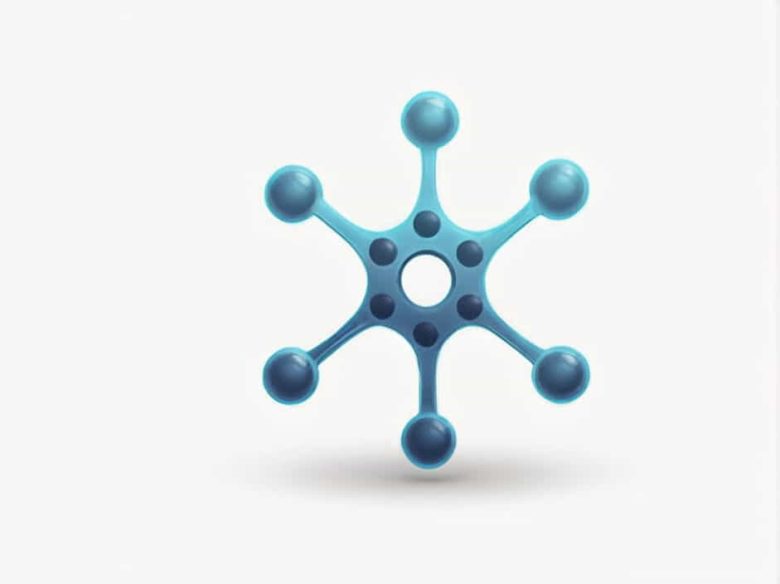Neurons are specialized cells responsible for transmitting information throughout the body. These long threadlike structures play a crucial role in communication between the brain spinal cord and other body parts. Without neurons essential functions such as movement sensation and thought would not be possible.
Understanding how neurons work and their structure helps us appreciate their role in the nervous system. This topic will explore what neurons are how they function and their importance in the human body.
What Are Neurons?
Neurons also known as nerve cells are the fundamental units of the nervous system. They carry electrical and chemical signals to and from the brain and spinal cord enabling the body to respond to stimuli.
Unlike other cells neurons have a unique elongated shape allowing them to transmit signals over long distances. Some neurons can be over a meter long especially those that run from the spinal cord to the limbs.
Structure of Neurons
A neuron consists of three main parts:
1. Cell Body (Soma)
- Contains the nucleus which controls cell activity.
- Houses essential organelles such as mitochondria and ribosomes.
- Acts as the processing center of the neuron.
2. Dendrites
- Short branched extensions that receive signals from other neurons.
- Transmit information to the cell body.
- Increase the surface area for better communication.
3. Axon
- A long threadlike structure that carries impulses away from the cell body.
- Covered by a myelin sheath (in some neurons) for faster signal transmission.
- Ends in axon terminals which connect to other neurons muscles or glands.
Types of Neurons and Their Functions
Neurons can be classified based on their function:
1. Sensory Neurons
- Carry information from sensory organs (eyes skin ears) to the brain.
- Detect stimuli such as heat light sound and pressure.
- Help us react to our environment.
2. Motor Neurons
- Transmit signals from the brain and spinal cord to muscles and glands.
- Control voluntary and involuntary movements like walking blinking and digestion.
3. Interneurons
- Found in the brain and spinal cord.
- Connect sensory and motor neurons to process information.
- Play a role in reflex actions and decision-making.
How Do Neurons Transmit Signals?
Neurons communicate using electrical and chemical signals in a process called neurotransmission. This process occurs in three steps:
Step 1: Electrical Impulse (Action Potential)
- A neuron receives a stimulus triggering an electrical impulse along the axon.
- The impulse is generated by the movement of sodium (Na⁺) and potassium (K⁺) ions across the neuron’s membrane.
Step 2: Neurotransmitter Release
- When the impulse reaches the axon terminals it triggers the release of neurotransmitters (chemical messengers).
- These chemicals cross the synapse (the gap between neurons) and bind to receptors on the next neuron.
Step 3: Signal Reception
- The receiving neuron detects the neurotransmitters and generates a new electrical impulse.
- This cycle continues until the signal reaches its final destination (e.g. brain muscle or gland).
The Role of Myelin in Neuron Function
Some neurons have a myelin sheath a fatty layer that wraps around the axon. The myelin sheath helps:
- Speed up nerve impulses by allowing signals to jump between gaps called nodes of Ranvier.
- Protect the axon from damage.
- Improve efficiency of nerve signal transmission.
In diseases like multiple sclerosis (MS) the immune system attacks the myelin sheath leading to slower nerve impulses and symptoms such as weakness and loss of coordination.
The Importance of Neurons in the Nervous System
Neurons play a crucial role in every bodily function. Without them the brain could not communicate with the rest of the body. They are responsible for:
1. Movement and Coordination
- Motor neurons control muscle contractions allowing us to walk write and speak.
- Reflexes such as pulling a hand away from heat are coordinated by interneurons.
2. Sensory Processing
- Sensory neurons allow us to experience the world through touch smell taste hearing and sight.
- They help detect pain temperature and pressure.
3. Memory and Learning
- Neurons in the brain form complex networks that store and process information.
- Learning occurs when neuronal connections (synapses) strengthen through repeated use.
4. Regulation of Internal Functions
- Neurons control heart rate digestion and hormone release.
- They work closely with the endocrine system to maintain homeostasis.
Neurotransmitters: Chemical Messengers of the Brain
Neurons communicate using neurotransmitters which affect mood cognition and bodily functions. Some key neurotransmitters include:
- Dopamine – Involved in pleasure motivation and reward.
- Serotonin – Regulates mood sleep and appetite.
- Acetylcholine – Important for memory and muscle movement.
- Glutamate – The main excitatory neurotransmitter helping with learning.
- GABA – The main inhibitory neurotransmitter reducing stress and anxiety.
Imbalances in neurotransmitters can lead to disorders like depression anxiety Parkinson’s disease and schizophrenia.
Neurons and Brain Health: How to Keep Your Nervous System Strong
Protecting neurons is essential for brain health. Here are some ways to keep the nervous system functioning well:
1. Eat a Brain-Healthy Diet
- Consume foods rich in omega-3 fatty acids (found in fish nuts and seeds) to support neuron function.
- Avoid excessive sugar and processed foods which can harm brain cells.
2. Stay Physically Active
- Exercise improves blood flow to the brain promoting neuron growth and repair.
- Activities like walking yoga and strength training can enhance brain function.
3. Get Enough Sleep
- Sleep helps remove waste products from the brain.
- Poor sleep can affect memory concentration and mood.
4. Challenge Your Brain
- Engage in puzzles reading or learning new skills to strengthen neuronal connections.
- Mental stimulation helps delay cognitive decline.
5. Avoid Neurotoxins
- Reduce alcohol and drug use as they can damage neurons.
- Protect yourself from heavy metals (e.g. lead mercury) that can harm the nervous system.
Neurons are the long threadlike cells that carry electrical and chemical signals throughout the body. These specialized nerve cells are essential for movement sensory processing cognition and internal regulation. Their ability to transmit messages rapidly allows the brain and body to work together seamlessly.
By understanding how neurons function and maintaining brain health through proper nutrition exercise sleep and mental stimulation we can support our nervous system for a lifetime of optimal performance.



